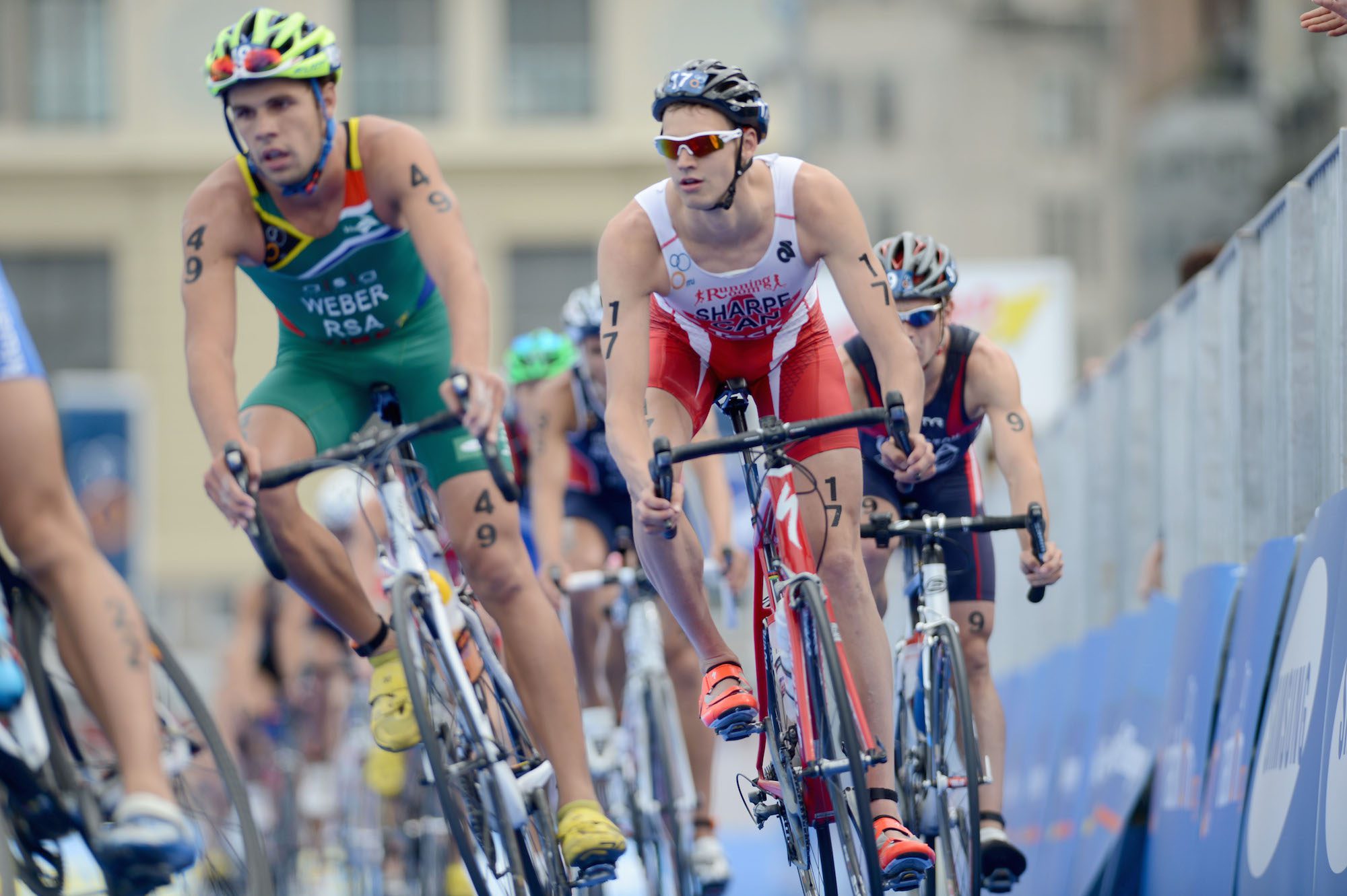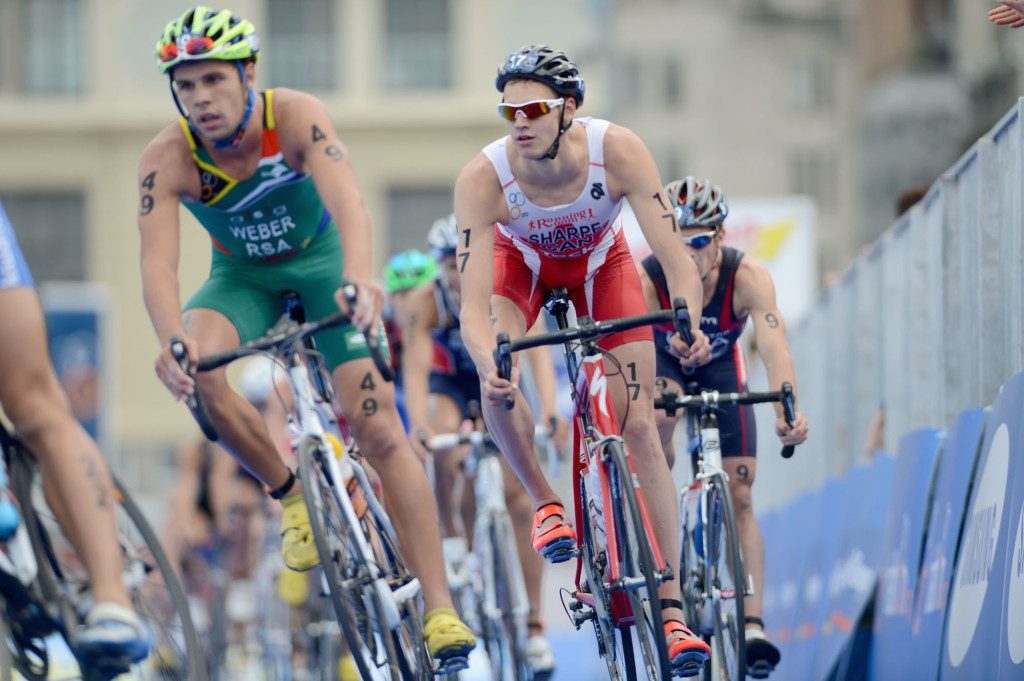Olympic qualifying for Rio 2016 begins – A chat with Olympic hopeful Matthew Sharpe


We caught up with Vancouver Island’s Matthew Sharpe, an Olympic hopeful who provides some great insight into his own journey and those of his fellow Canadian teammates on the ITU circuit.
TMC: What are your thoughts on Canada’s young potential qualifiers?
Matthew Sharpe: Heading into the next Olympics Canada is gifted with a surplus of talent. We currently have six capable women; Kirsten Sweetland, Paula Findlay, Sarah-Anne Brault, Joanna Brown, Ellen Pennock and Amélie Kretz who could all easily be on the start line in Rio. But with six athletes and three potential spots the math doesn’t quite work out. We’ve all seen that a lot can happen within the two year Olympic Qualifying period so for the women it will be crucial to perform at key WTS races in 2014, 2015 and early 2016 while staying relatively injury free and consistent in training. On the men’s side, we currently have two men in the top 50 in the ITU points list. Led by National team veteran Kyle Jones, Andrew Yorke, Andrew McCartney, Alexander Hinton and myself, the men will be working to gain spots on the start line.
TMC: You’ve had to delay your start to racing in 2014. What was the problem?
MS: After an inconsistent 2013 with injuries, I was keen to bounce back and just add some stability to my winter training and we focused on building my strength over the aerobic base through till January. Working with a new coach (Triathlon Canada head coach Jamie Turner) always has a breaking in period and in the process of preparing for a couple of early season races I believe we introduced some intensity into my running too early in my program. I suffered a number of overuse issues in my hip that by nature were stubborn and required a longer recovery period.
TMC: How will this affect your racing schedule for the rest of the year? What are you hoping to achieve this season?
MS: I have returned to running and it is now complementing the swimming and cycling I have maintained throughout the injury. Right now it is important for me to remain conservative in my return to running as my fitness is “too much for my body to handle.” I will begin racing in late May in my first French Grand Prix race for my new team Versailles. I’ll race and train in Europe for the rest of the summer after which I hope to compete for a spot on the podium at the U23 World Championships in Edmonton.
TMC: Do you like the fact that the ITU is making a lot of the races sprint distance races, despite the fact that the Olympic distance is what is actually going to be contested at Rio and is a whole different beast?
MS: I actually like the shorter events as they allow the athletes to race the same or more but recover quicker than a full Olympic distance. The problem I have is that races that won’t be contested at the Olympics but will be used to qualify for it. That doesn’t seem correct to me and I know that I am not alone on this. The ITU doesn’t seem to have a problem with this and that is fine as it plays well in their strategy for growth and increased exposure for Triathlon. Of course, if that is the case why not fully commit? The sprint distance itself is completely meaningless. Why not have a more exciting format built for television; something like a 3 loop 1200m swim, 8 lap 16 km bike and 5km run. This race would be much better suited for TV at a roughly 45 minute length that could see much more interesting dynamics then the current, predictable sprint distance.
TMC: You are on the start pontoon ready to go. Describe how the perfect race will unfold for you. What is your mindset?
MS: As I’ve evolved as an athlete I’ve definitely changed in terms of my mindset in the lead up to races. As a younger athlete I was filled with anxiety over small aspects and as I’ve matured those worries have dropped off. I’m now more relaxed and over the past year with the guidance of coach Jamie I’ve learned the value of focusing in on my key processes that lead to a successful performance and blocking out the external influences. This allows me to have a sense of clarity as I dive into the water and the chaos of the swim. Throughout an ideal race I’d just continue to focus on what I need to while maintaining strong race tactics and responding to challenges; this doesn’t always lead to success but it is the definition of a complete race. I’ll always work for that.
TMC: Talk about your idea regarding getting Triathlon a larger National profile.
MS: I believe Triathlon should be designated Canada’s national summer sport. We have hockey as our cultural connection and obviously that is something we hold sacred but Triathlon as a national summer sport it could provide something many Canadians can connect with.
Triathlon is comprised of basic life activities, swimming, cycling and running. You can integrate them into your life from 8-80 and for the majority of Canadians they are exposed to all three from a young age. There are the obvious benefits such as a healthy population due to increased popularity of the sport and that can assist addressing future health care costs. A population that sees growth in the exposure and participation in cycling will lead to a more balanced relationship between road users and potential savings in carbon emissions from a population that embraces cycling in their lifestyle and commute.
TMC: What is your favourite workout?
MS: Swim: Main Set- 24 x 100m Best Average on 1:40, done in 4 sets of 6 with 1 minute between each round. Pretty straightforward try to hold the best time you can for all 24. Really challenges you to push and tests your mental strength.
Bike: “Hour of Power.” We do this in Spain on a hilly route and it usually finishes on a badass hill. Just an hour of rolling turns in a paceline 4 minutes on 1 minute off. Basically, just a chance for the group to rip into each other. Usually some good banter after this one!
Run: “Pace extender.” Choose a goal pace for running off the bike and complete 5 to 7 x 2km with any amount of rest. You’d better be hitting the paces though!
